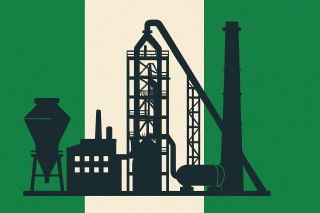Following the collapse of a second round of talks between South Africa's two leading cement producers on a proposed merger, will AfriSam's expected new proposal be enough to push negotiations through and be a case of third-time lucky?
Last Friday AfriSam confirmed that it had cancelled the Heads of Terms it had entered into with PPC, which would have led to a formal merger agreement but says it remains committed to pursuing a deal. "AfriSam remains firm that a transaction between AfriSam and PPC will greatly benefit the stakeholders of both companies. For this reason, we continue discussions with PPC and will explore other alternatives available to us," AfriSam Acting Chief Executive, Rob Wessels, said in a statement.
Merger talks between the two producers had initially started at the end of 2014 with discussions lasting until the end of March 2015, before PPC confirmed that neither party could agree on terms. According to local press reports, the two sides have previously failed to agree on how to value the deal and who will control the combined entity.
Discussions were revived in February this year as both companies faced lukewarm demand growth at home, increased competition, low prices, import pressures, high debt levels and low profitability. PPC said in its recently-published Integrated Report 2017: "Two new players have fully integrated into the local market, taking the number of cement manufacturers to six. In our view, given the demand/capacity utilisation ratio, the South African market is poised for consolidation."
PPC chairperson, Peter Nelson, has this week said that the negotiations would only continue beyond 1 September 2017 if the new proposal tabled by AfriSam was "of sufficient interest and attraction and fair to shareholders and warranted extending" the negotiations. He said if PPC did not receive a new proposal from AfriSam, or the proposal it received was not what they were expecting, PPC might terminate the merger discussions at the close of business on Friday. "We can't carry on forever. A lot of shareholders are so frightened about the prospect, but I say to them wait until you see all the details and the picture and apply your mind to it," he told local press.
News reports suggest that the new proposal will include a strategic equity partner capable of injecting a large amount of cash to capitalise the combined entity. The prospect of a partner with more financial strength could enable AfriSam to put forward a new merger proposal that would be more attractive to PPC management and shareholders.
Pooling resources
PPC has previously stated that the merged entity, by virtue of enhanced abilities, will be better placed to invest in growth opportunities domestically and develop as a major African cement producer, given its complementary production assets in six African countries outside South Africa.
Meanwhile, Mr Wessels said that the merger – if it goes ahead – would give the combined group better buying power from its suppliers and improved reach across the country. PPC's South African operations supply cement from five integrated plants, Slurry (1.5Mta), De Hoek (1.1Mta), Dwaalboom (2.1Mta), Riebeeck (0.5Mta) and Port Elizabeth (0.2Mta), two grinding units and two blending facilities. It is also currently undertaking a major capital investment and modernisation effort at the Slurry cement works due for commissioning in 1H18.
AfriSam has two integrated plants, Dudfield and Ulco of 1.8Mta and 1.3Mta, respectively, and a grinding facility at Roodepoort (1.5Mta), plus Slagment's Vanderbijlpark (slag grinding and blending station, with capacity for over 0.8Mta of Slagment and over 0.2Mta of blended products), plus a blending station at Brakpan. Its total production capacity is around 5Mta. Plans to build a new integrated plant (0.6Mta clinker) at Saldanha Bay in Western Cape and a grinding plant at Coega in Eastern Cape do not appear to have progressed significantly in 2015-16. Reasons for this could include the downgraded market environment and the probability that AfriSam is strapped for cash.
Market watchers said the timing of the merger is opportunistic, with PPC striking at a time when AfriSam is struggling. On its part, AfriSam has described the potential tie-up with its larger rival as a "defensive merger", owing to industry oversupply. It is largely believed that a merger between the two groups would be more beneficial for AfriSam and PPC (with its scale and cost advantage and post its equity raise last year) is relatively better placed to weather a sustained low cement price environment.
Whatever the outcome from the impending round of negotiations, it's clear that consolidation in the South African cement industry would be welcomed, helping to cut costs and improve efficiencies at a time when the industry is struggling with increased competition and softer demand. Speaking at PPC's annual general meeting on Monday, Mr Nelson says the cement producer is an attractive company with the potential to draw more than one suitor and would consider any binding and firm offer, from AfriSam or any other party, should one arise.
